By: Arthur Magero MA
Shalom-SCCRR called on to intervene, transform and bring reconciliation to birth. The conflicts in Molo and Kuresoi are ethnic in identity and are a major challenge to long-term peace and security. “The only way we can peacefully co-exist is through our commitment to conflict prevention, conflict transformation, and reconciliation processes which will help us create a better future among ethnic communities living in Molo and Kuresoi. This will happen when we recognize the values we desire to embrace as communities and transform from the mistakes of the past,” asserted Ms. Njeri Njonjo, Community Facilitator Molo community peace group.
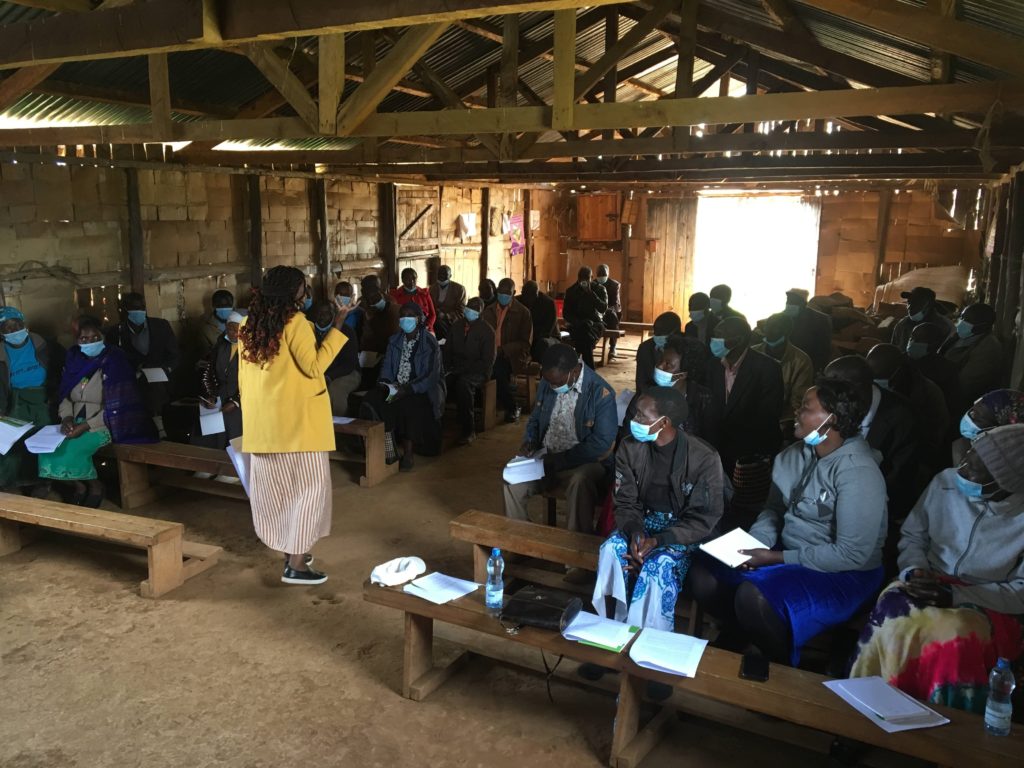
Mr. Gideon Orwaru a Community Facilitator for Kuresoi community peace group, and a village elder in Kuresoi alludes, we really need to be reconciled and find ways to overcome the political tension that builds up every time during the electioneering period and rebuild our relationships to promote the value of inter-communal development. Shalom-SCCRR is a great help in moving towards this goal.
Enhancing the capacity of Stakeholders in conflict prevention and transformation
At the beginning of October 2021, Shalom-SCCRR began engaging the key stakeholders in Molo and Kuresoi on how to prevent and transform the latent violent situations that are gradually becoming rampant among communities. During the conflict analysis session, it was emerging that the heightened political activity due to the forthcoming general election was a factor associated with the tensions that were evident among community members in the two areas. Informed by the analysis of the conflict situation, Shalom-SCCRR has activated its peacebuilding and conflict transformation methodology equipping the leaders with the analytical skills for a better understanding of the conflicts and empowering them to take joint actions towards transformation and reconciling relationships.
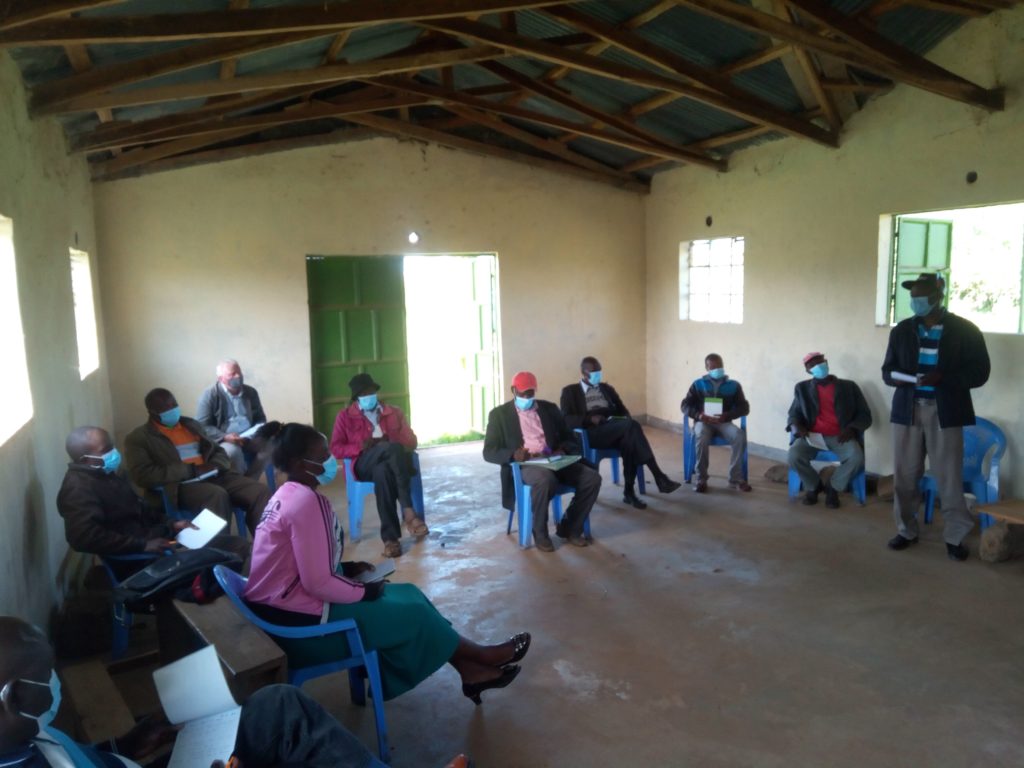
Mr. Bernard Langat, a community elder and a member of the Molo peace group emphasized this by observing that, Molo and Kuresoi sub-counties are always labeled as conflict hotspots, especially during the electioneering period. He went further to note that the election-related conflicts are exhibited when communities and politicians begin to utter tribal utterances, divisive politics, rise in differences over issues of land, increased cases of livestock theft, stereotyping, and increased instances of hate speech.
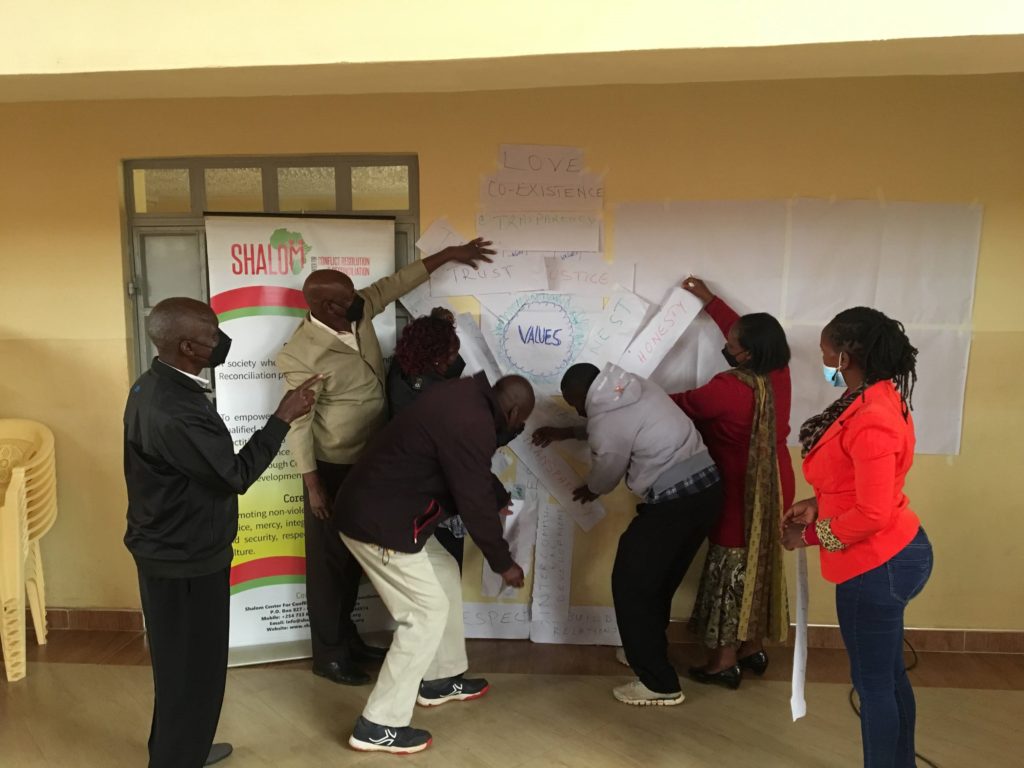
Mrs. Miriam Waithera, a Community Facilitator Molo community peace group and a resident of Molo appreciates the efforts of Shalom-SCCRR by noting that: it is of great support that Shalom-SCCRR has remained instrumental in facilitating peacebuilding and conflict transformation processes that aim at building structures that promote cohesion, inclusivity and positive peace through conflict prevention, transformation and reconciliation forums to the communities living in Molo and Kuresoi.
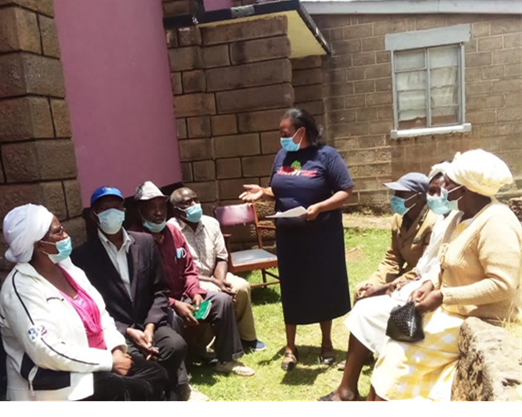
The communities in Molo and Kuresoi, through Shalom-SCCRR support, have begun to adopt and adapt to restorative practices like peace circles as a tool for promoting reconciliation and inter-ethnic co-existence process in addressing conflict and violence. This is because Shalom-SCCRR has continued to enhance the capacity of key stakeholders through various peacebuilding trainings, and Peace Circles is a reconciliation approach that is now owned by the communities. The communities are demonstrating improved capacity in dialogue among themselves concerning past offenses thus creating a better opportunity for attaining trauma and psychological healing, to both the offender and the victims.
Mrs. Jane Njeri who is a farmer in Molo says that; “the ‘We Verses Them’ is an identity that has created a lot of mistrust among the communities living in Molo and Kuresoi.” She further narrates that, “the people living in these two sub-counties of Nakuru are wounded and they live in negative peace as cooperation can only be experienced among those who are from the same community because there is a lot of mistrust among them. This has been noticed through hatred and fear of domination especially during the election years.”
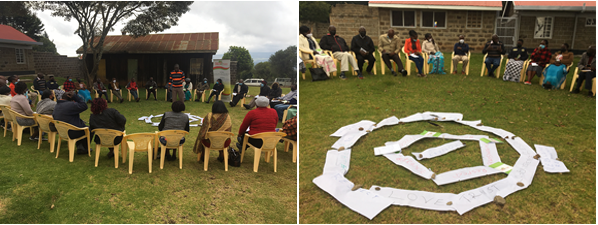
Women participation in peacebuilding process in Molo and Kuresoi
Ms. Judith Chelagat emphasized; we as women in Kuresoi sub-county, will not be left behind in the process of peacebuilding, our aspiration is to use the knowledge and skills we have acquired from Shalom-SCCRR to sensitize the communities on the importance of peaceful-coexistence by asking them to reconcile and unite in preventing any occurrence of conflict in their region, hence becoming the architect of their own interdependent future.
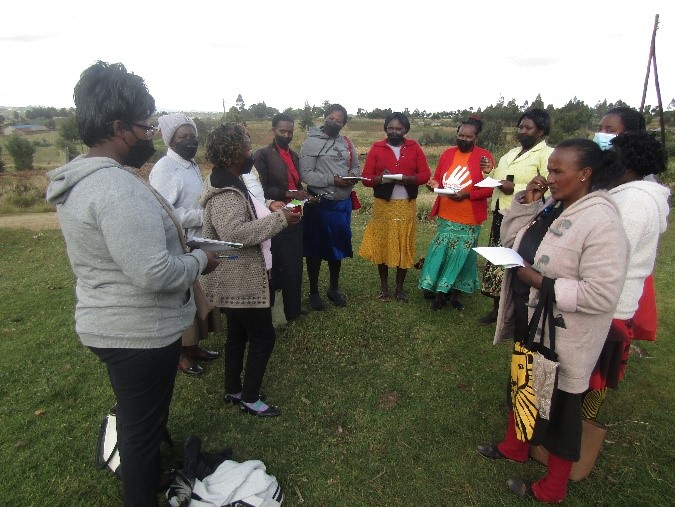
Shalom-SCCRR also continues to support the participatory process where all voices can be heard through the peace circles process hence rebuilding the relationships of the ethnic communities in Molo and Kuresoi. This has helped them to locally own the conflict intervention process in addressing mistrust and rebuilding their relationships by providing space at the community level for extensive conflict analysis to identify underlying causes of conflict in the two sub-counties.
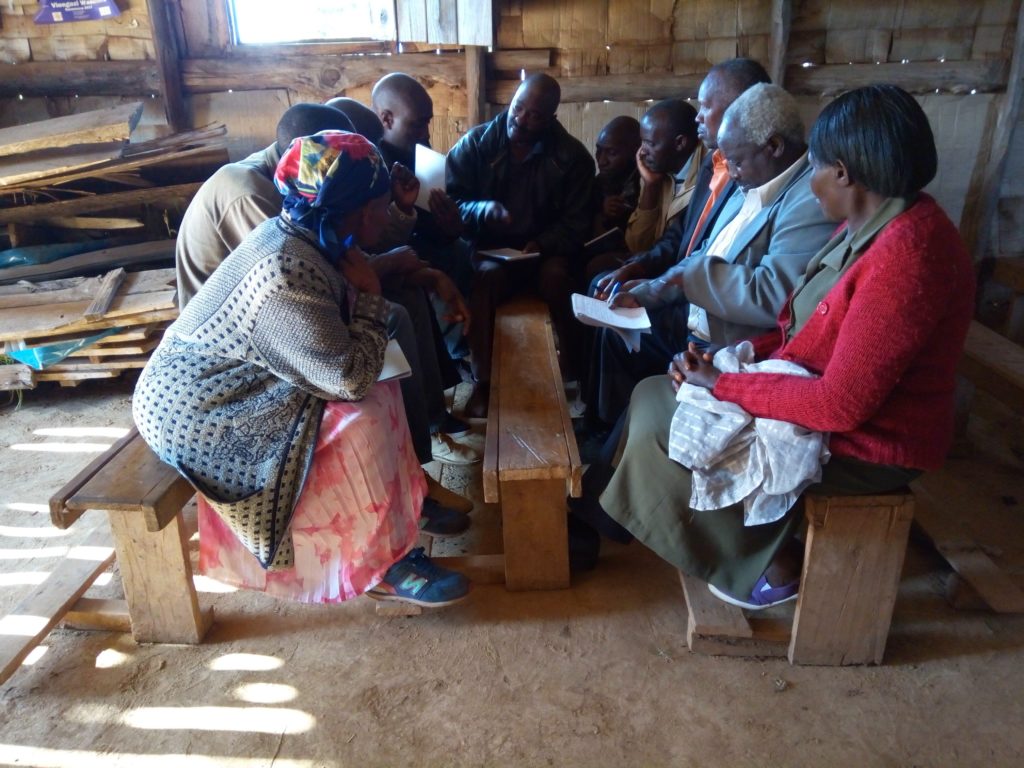
Impact of Development support on schools in Molo and Kuresoi
Shalom-SCCRR has also continued to provide material support to needy schools affected by conflict in Molo and Kuresoi. Seven (7) schools have benefitted from different development projects implemented by Shalom-SCCRR during 2020 and 2021. These development interventions have contributed to improved performance, an increase in the number of new pupils being enrolled in school, and reduced cases of absenteeism. Currently, the ratio of pupils to desks is 1:1, and pupils have enough exercise books, stationery, and other learning materials that support their education.
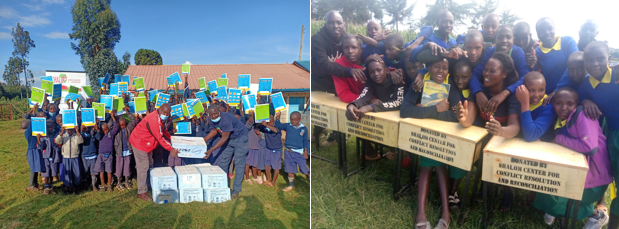
Relevant Links:
https://shalomconflictcenter.org/briefing-paper-no-10/
https://shalomconflictcenter.org/enhancing-peace-through-education-and-development-in-nakuru/
https://shalomconflictcenter.org/conducting-an-evaluation-of-activities-in-nakuru-county/
https://shalomconflictcenter.org/empowering-nakuru-communities-to-achieve-peaceful-coexistence/
https://shalomconflictcenter.org/3901-2/
https://shalomconflictcenter.org/submission-to-public-consultation-on-the-irish-aid-white-paper/
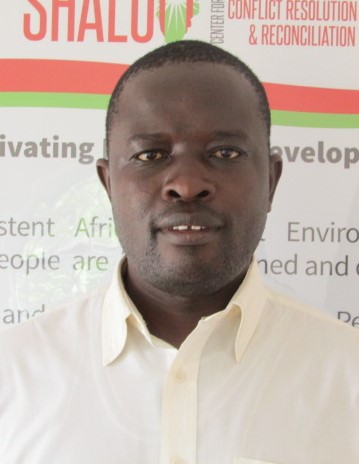
By: Arthur Magero MA, Shalom-SCCRR Project Officer, Nakuru & Kisumu Projects
CONNECT WITH SHALOM-SCCRR

